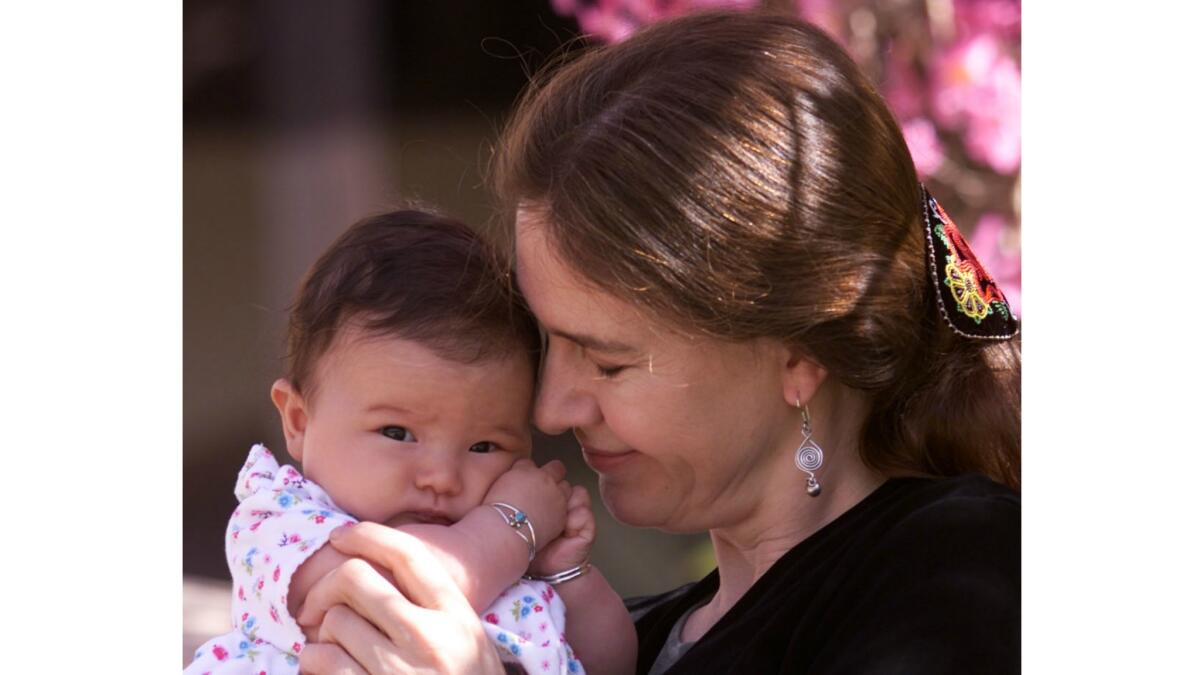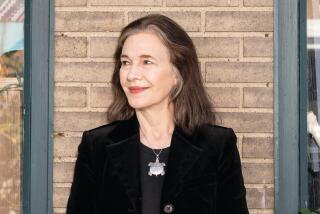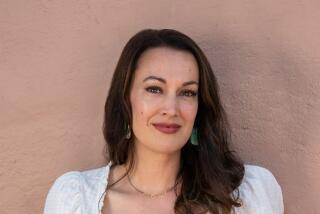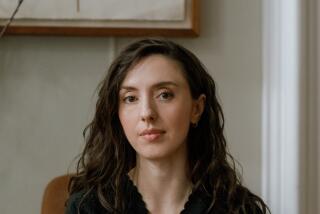Louise Erdrich discusses her new novel, ‘Future Home of the Living God’
It’s already snowing in Minnesota, where Louise Erdrich lives, by mid-October. “We’ve got a snowstorm outside,” she says by telephone, because the connection is poor. “It might be affecting the lines.”
Erdrich, the acclaimed novelist whose 2016 “LaRose” won the National Book Critics Circle Award for Fiction, likes to maintain clear communication — which is why she prefers to conduct interviews via email. “This is the problem with phone interviews,” she says, a few minutes into an answer. “I start off on tangents.” But she’s articulate, warm and candid as she speaks about her latest book, “Future Home of the Living God” (Harper, $28.99), a complete departure from her previous work. This dystopian novel set in the near-future revolves around Cedar Hawk Songmaker, a young woman who is half-Ojibwe by birth but who has been raised by an Anglo couple named Glen and Sera Songmaker.
Something dire has happened in the world, and it’s affecting all kinds of things, from the food supply to migration patterns to the very nature of human life. When Cedar discovers she’s pregnant, she knows that she has to be careful. When she has an ultrasound, the technician says, “We’ve got one.”
While Cedar tries to hide while in her first trimester, once her pregnancy starts to show, she has to flee — and, fortunately, she has now been introduced to her biological family up north and has somewhere to go. “I wanted to explore what a public creature you become when you’re pregnant, how everybody puts their hands on you, you’re vulnerable to an extreme degree when you’re pregnant.” Cedar’s flight and her adventures are, Erdrich acknowledges, an epic journey with an expectant mother at its center — and when was the last time you saw that?
Anti-choice is about controlling women’s bodies period. It’s about seizing control of young women. That’s it. That’s what it’s about. Period.
— Louise Erdrich
Erdrich agrees that this novel is about “the other side of choice. I don’t know why this hasn’t been explored more deeply, but every time you make a choice to have a child, you give up all of these other options that are potential children in your life. You’ve basically thrown the dice, landed on some formation of genetic circumstance and that’s the child you’re having. Whereas, and that’s still not your choice, you’re still rolling the dice.”
The subject matter isn’t surprising for Erdrich, who has said that she couldn’t have been a writer “without birth control.” She has now published 16 novels, plus poetry, children’s books, short stories and a memoir. “When I was accepting the Library of Congress Prize I think I thanked Planned Parenthood first of all, because it’s true. If I hadn’t been able to choose when to have a baby, I would not have been able to put in those crucial years of growth as a writer, when you make so many mistakes and you go in every direction and you paw through the language and you need that freedom at that time.”

When asked if she wanted to explore the idea of the state controlling women no matter what they want, she answers quickly and firmly. “That’s why it’s so obvious to me that anti-choice rhetoric isn’t about religious faith. That’s just a way for people to frame what they’re doing in a way that is palatable for them. Anti-choice is about controlling women’s bodies period. It’s about seizing control of young women. That’s it. That’s what it’s about. Period.”
Erdrich also believes that older women with strong voices have a responsibility to those young women under siege. “We do have stronger voices, in large part because we were able to make our choices at that crucial age. Of course, coming of age when I did, when I talk about it, it astounds my daughters who range in age from 16 years old to 32 years old. We had the right to have abortion. It was simple, very simple. They cannot believe it. That there was that, because it’s so different now. It’s so different.”
You can say ‘Oh, I want to be a strong woman,’ but if you say ‘I want power. I’m ambitious. I want to control,’ then you’re a witch.
— Louise Erdrich
She continues: “I feel extremely protective of young women, because I didn’t know what was happening. Yes, I had all that freedom. Yes, I was able to make choices.” However, Erdrich also admits that in the era of choice, there was something else dangerous to young women. She was in the first Dartmouth College class that admitted women. “My whole mode was man pleasing at that age. I was surrounded by men, including most of my professors, and gravity just drew me to them.” She says that today, on seeing women speak up about sexual predation, she is “profoundly grateful. I had no name for what was happening to me at the time. I could not even conceive of a world where I wasn’t fending off men — and trying to manipulate men.”
One of Erdrich’s favorite female villains of fiction is Becky Sharp of Thackeray’s “Vanity Fair,” “because she’s taken the lessons of our culture and applied them in perfect order. She’s manipulated. She’s ambitious. She’s greedy. She wants power. It’s a short recipe for being a witch.” You can’t want those things out in the open, she says, if you’re a woman. “You can say ‘Oh, I want to be a strong woman,’ but if you say ‘I want power. I’m ambitious. I want to control,’ then you’re a witch. Even if you just want to control your own destiny, you’re suspect.” While she doesn’t want to go into the election, Erdrich shares that her nonagenarian father told her, “I’m just voting for the most highly qualified person who’s ever run for the presidency in Hillary Clinton.” (At 92, recently recovered from a bicycle accident, he’s planning on voting in the next election.)
One of the most interesting aspects of “Future Home of the Living God” has to do with females who are revered, including the Blessed Virgin Mary and St. Kateri Tekakwitha, the “first” (in 1656) Native American to be so recognized by the Roman Catholic Church. Cedar, who in spite of her bohemian adoptive parents’ objections has converted to Catholicism, looks to St. Kateri as a role model, along with other female saints like Hildegard of Bingen. But the outlines of sainthood are not exactly empowering to women, says Erdrich. “That’s why I included Hildegard, and Kateri. By any accounts they led horrifying lives. Kateri experienced a time in which nine out of 10 people around her were dead. Nine out of 10! She either probably thought, ‘Our ways haven’t helped us. I’m going to go and conform to this entirely other world.’ She was traumatized beyond trauma. She had to seek some sort of help.”
At the end of “Future Home of the Living God” things are left a bit open ended, and that’s on purpose — but the author isn’t sure if she’ll return to Cedar’s story, at least for a while. She has “one or two other novels I’m working on,” so there is lots of Louise Erdrich writing to look forward to for readers.
She still writes in longhand, in notebooks, and she still sells paper books at her Minneapolis store, Birchbark Books. It’s doing well, she says: “We’re kind of shocked, because we still can’t get it through our heads that we have survived.” In her life and her work, Louise Erdrich continues to pay attention to the future.
Patrick is a writer and critic whose work appears in the Washington Post and on NPR Books.
More to Read
Sign up for our Book Club newsletter
Get the latest news, events and more from the Los Angeles Times Book Club, and help us get L.A. reading and talking.
You may occasionally receive promotional content from the Los Angeles Times.







